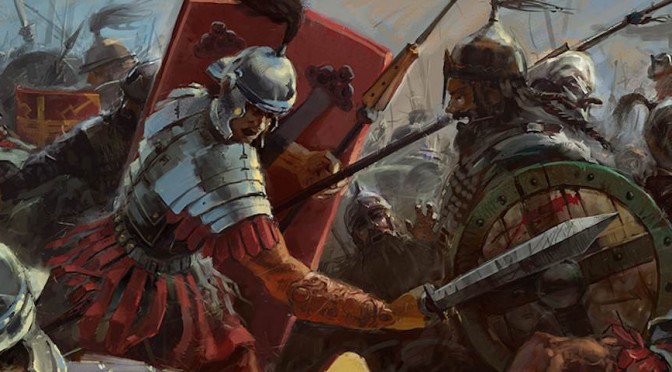Vandals
In AD 439, a short time before the Hunnic invasion, Vandals, had been invited to Northern Africa from Hispania as Foederatii by Bonificus, the Comes for Africa. Bonificus was in an an internal Roman dispute with Flavius Aetius, triggered by each of them trying to discredit the other in the eyes of Galla Placida. The vandals promptly declared themselves to be a Kingdom, independent of Rome. The implications of this sequence of events were disastrous for the Western Empire. Without access to the grain from Egypt and Libya which were provinces of the Eastern Empire, the Western Empire was now totally dependent on grain from Africa and Mauritania (now coastal Tunisia, Algeria and Morocco). The Western Empire was forced to pay a full commercial price for the grain.
In 454, Valentinian III murdered Flavius Aetius and a short time later Valeninian himself was murdered. His own death was supposed to be a reprisal. It is difficult to believe that the murders were totally separate from Valantinians’s sister Honoria’s proposal to Attila and the fact that Aetus had an enduring alliance with the Huns. Certainly Flavius Aetius’ death co-incided with Honoria vanishing from the record.
After the deaths, Petronius Maximus, assumed the purple and insisted that Eudoxia Licinia Valentinians’ wife and therefore Galla Placida’s daughter in law should marry him, something so did not want to do. Maximus lasted only seventy days. Lucinia asked Gerseric, King of the Vandals to rescue herself and her daughters from the clutches of Maximus and his son. Subsequently she married Gerseric and her daughter, Eudoxia Valentina, Galla Placida’s grand-daughter married Hunneric, Gerseric’s son from a previous union.
To the North, all three of the major groups of foedaterii payed attention to the Vandals successful declaration of independance and commenced a process of expansion sometimes allowed by the magister militorum, but sometimes resisted.
Visigoths
The Visigoths had the most success, quite probably as a result of support from Galla Placida but in any case aways making their expansion seem to be in the service of Rome, hence their move into Hispania to control The Sueves and Alans.
In AD 455 on the death of Maximus it was the Visigoths who nominated his successor Avitus. Avitus was not a Visigoth. Clearly up to that point they were operating at least nominally within the Roman System. Considering the reputation this period has for instability it is rather surprising to find that Honorius ruled for twenty-six years and Valentinian III for twenty five.
When Avitus was declared Emperor by the Visigoths. He returned the complement by appointing Riccimar, who was half Visigoth, to the post of Magister Militorum Praesentalis. It took less than a year for Ricimar to take advantage of his new position to drive Avitus from office. It was possibly from this point in time that the Visigoths made the decision to seek full independence.
Ambrosius
One of the surprises in the period immediately after the period of the Hunnish invasions was the prescence of the British in Gaul. After the time of Macsen Weldeg a considerable flow of Romano Britsh immigrants into Brittany.The subtleties of the Celtic languages indicate that the later wave of refugees, fleeing from the Saxon advance, had a significant impact. Many of the place names in Brittany have their origins in this later event.
However in 457, The Angles, Saxons and Jutes were firmly pinned in the south east corner of britain and all the signs were that Ambrosius, still in the service of Aegidus and nominated as governor of Britain, would completely subjugate them. Ambiosius was however voted to be high King of the British in a parallel initiative to that of the Franks who voted for Aegidus as their High King.
There then followed seventeen years in which Ricimar decided who should be Emperor, including two years in which he exerted direct personal rule without the formality of declaring himself, or anyone else, Emperor. It was in this period that his one time colleague Aegidus placed himself safely behind the barrier presented by the Allamandii, Burgundians and Visigoths to set up an alternative Roman State. Aegidus died in 464 and the area he controlled was taken over by his son Sygonius.
Caswellan
When Ricimar dismissed Avitus and appointed Majorian as Emporer, Marcian took a dislike to the idea of Romans being High Kings. He summoned both Aegidus and Ambrosius to come to Rome. Aegidus ignored Majorian but Ambrosius ,now known in Gaul as Riothemus “The High King” went to Rome to plead his case. it is possible that marcian was making an appeal for him to accept roman authority. He ended up for a short period in prison and in England Caswallan made himself an alternative High King. Caswellan had little perhaps no Roman heritage. His was a rebellion inside a rebellion.
When Majorian was in turn dismissed, Ambrosius was released by the next emporer ,Libius Severus and hurrying back to Britain, sent Caswallan into exile, whereupon Caswellan took refuge with the Visigoths.
